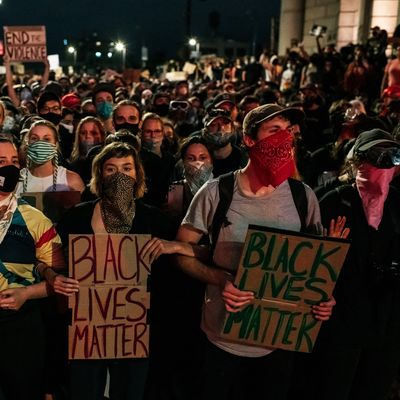
The first protests against George Floyd’s killing in Minneapolis began on May 26, the day after a police officer knelt on his neck for nearly nine minutes and killed the 46-year-old. By the next night, protesters were filling the streets in cities across the country despite concerns over the ongoing coronavirus pandemic.
As the protests went on, worries over a spike in the coronavirus grew. Last week, members of the Trump administration’s coronavirus task force warned governors of a protest-related increase in cases. Dr. Deborah Birx, the task force’s coordinator, said on a call last week that yelling from protesters could present a particular problem and potentially cancel the positive benefits of wearing masks.
But given the virus’s incubation period, it was always going to take time to find out if the protests would lead to a spike in cases. That time has come, and three weeks after the protests began, cities across the country where some of the biggest demonstrations took place are reporting no surge in COVID-19 cases.
In Minneapolis, the epicenter of the protests in late May, 1.4 percent of tests conducted on protesters last week came back positive. That was well under the state’s overall positive test rate at the time, which averaged 3.7 percent for the week. This week, 1,288 people were tested at a Boston site set up for protesters. Fourteen, or 1.08 percent, came back positive. Other locations reporting no measurable spike in cases after widely attended protests include Philadelphia, Seattle, Sacramento, and upstate New York.
Experts have attributed the lack of a spike to the prevalence of face masks at the protests, the outdoor setting, and the relative youth of participants. “We can’t guarantee there’s not going to be a later rise,” Philadelphia Health Commissioner Thomas Farley told the Philadelphia Inquirer, “but it’s a good sign we haven’t seen it yet.” One worry, Drexel epidemiologist Michael LeVasseur told the paper, is that young, healthy people who’ve contracted the virus and remain asymptomatic will spread it to older, more vulnerable family members.
The lack of spread at the protests is helping cement the growing consensus that the virus is hard to catch when you’re outside and wearing a mask. And it’s reportedly influencing officials in New York to rethink the pace of reopening, at least when it comes to beaches, outdoor sporting events, pools, and playgrounds.





























